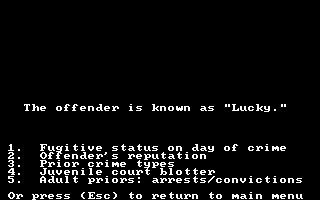GTA V's Trevor Actor Unmoved by GTA 6 Hype: Steven Ogg Interview
Last Updated: October 22, 2025

As the gaming world holds its collective breath for Grand Theft Auto VI, with its record-shattering first trailer fueling unprecedented levels of anticipation, one of the franchise's most iconic figures remains entirely unfazed. Steven Ogg, the brilliant actor who gave voice and life to the unhinged Trevor Philips in Grand Theft Auto V, has made it clear he feels "absolutely nothing" about the upcoming sequel.
While this might seem jarring to fans, Ogg's perspective is more complex than simple indifference; it's a candid look into the world of an actor grappling with a role so monumental it threatens to define his entire career, revealing a man who finds more solace in classic literature than the digital chaos he helped create.
The Man Behind the Mayhem: An Iconic Portrayal
Steven Ogg’s performance as Trevor Philips in Grand Theft Auto V was a masterclass in character acting. He transcended the typical confines of video game voice work, creating one of the most volatile, complex, and unforgettable anti-heroes in gaming history. Ogg's raw, unhinged delivery and dedicated motion-capture work brought a terrifying authenticity to Trevor. Fans were simultaneously repulsed and captivated by his dark humor, brutal honesty, and the sheer unpredictability he brought to the narrative. His portrayal was not merely a voice; it was a complete embodiment that earned widespread critical acclaim and cemented his place in the annals of gaming culture. It is this very success that makes his subsequent comments on the franchise so compelling.
A Deeper Detachment: Typecasting and the Actor's Burden
In an industry consumed by hype, Ogg’s candor is a rarity. When asked about his excitement for GTA 6, his response was blunt: "I feel nothing inside. I'm not a gamer. I've never played a video game. I feel absolutely nothing." This statement goes beyond a simple lack of interest in the medium; it hints at a deeper professional frustration.
For years, Ogg has expressed a desire to move beyond the shadow of Trevor Philips. His indifference toward GTA 6 is intrinsically linked to the challenge of being typecast. In a past rant, he referred to the public’s perception of him as a "cartoon," highlighting his frustration with being seen only as the video game character he portrayed over a decade ago. This struggle informs his detachment; it's not a rejection of the fans or the franchise, but a necessary boundary for an actor seeking to explore new roles without being permanently tethered to his most famous one. His lack of engagement extends to GTA V itself, a game he has famously never played, reinforcing that his focus has always been on the craft of acting, not the consumption of the final product.
GTA 6 and a World of Anticipation: A Contrasting View
The global anticipation for Grand Theft Auto VI is a cultural phenomenon. Its predecessor, GTA V, has achieved legendary status, selling over 200 million copies worldwide and becoming one of the most profitable entertainment products of all time. The debut trailer for GTA VI, released in December 2023, shattered YouTube viewership records for a non-music video, accumulating over 90 million views in its first 24 hours. The world is undeniably hungry for a return to the satirical, sun-soaked streets of Rockstar's America.
Against this backdrop of near-universal excitement, Ogg’s apathy is a powerful counter-narrative. While millions dissect every frame of the new trailer and speculate on the lives of Lucia and Jason, the man who embodied the franchise's chaotic soul remains unmoved. His perspective is a potent reminder that even those at the center of cultural touchstones can view them from a starkly different, and deeply personal, vantage point.
A Preference for Pages Over Pixels
So, where does Steven Ogg turn for narrative immersion? Not to the digital city of Los Santos, but to the pages of classic literature. He has openly encouraged his audience to read Fyodor Dostoevsky's timeless novel, Crime and Punishment. This recommendation is incredibly insightful, speaking volumes about the intellectual curiosity that informs his work. Dostoevsky's masterpiece is a profound psychological exploration of guilt, morality, and human nature—themes that, ironically, resonate within the complex madness of Trevor Philips. For an actor who brought such a layered character to life, a fascination with the intricate, darker aspects of the human condition found in great literature is hardly surprising.
The Actor and the Avatar
Steven Ogg's stance illuminates the crucial distinction between an actor's craft and a gamer's experience. His job was to embody a character, deliver a performance, and serve the narrative. That his performance became legendary is a testament to his skill, not his passion for the medium. His indifference to GTA 6 isn't an insult to the game or its fans; it's the honest perspective of a professional artist. Far from diminishing his iconic contribution, it highlights the immense challenge of inhabiting a character so fully that the world struggles to see the actor standing behind the avatar.